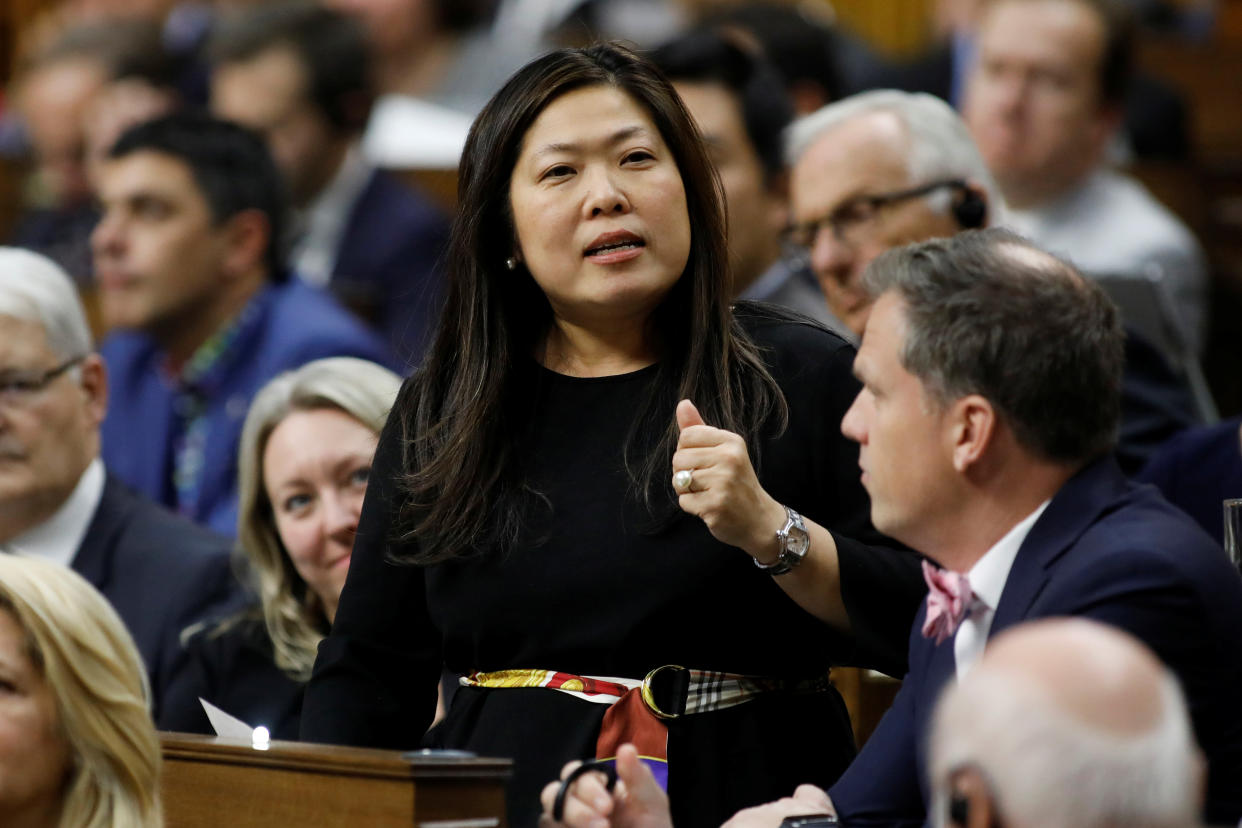Canada won't back down if U.S. aluminum tariffs are re-imposed

Trade minister Mary Ng said Tuesday that Canada will not impose reciprocal tariffs on the U.S. after it dropped its aluminum levies, but if the U.S. reimposes them, Canada will not back down.
“Let me be clear, Canada has not conceded anything. We fully retain our right to impose our countermeasures if the U.S. administration decides to reimpose its tariffs on Canadian aluminum products, and we are prepared to do so,” Ng said at a news conference.
Ng said the government has spoken with members of the aluminum industry on the “positive development, and to assure them that Canada will always stand up for aluminum workers, and the entire industry.”
Deputy Prime Minister and Finance Minister Chrystia Freeland said it was “such good news” that the U.S. relieved the tariffs.
“It’s a good decision for the industry and for Canadian workers. It’s a decision that is beneficial to everyone the imposition of U.S. tariffs was a mistake right from the beginning,” she said.
Freeland said there are no guarantees on what could happen next, but said Canada will be strong on retaliatory efforts if tariffs are re-imposed.
“Should tariffs be reimposed on our aluminum exports in the future. Canada will retaliate with perfectly reciprocal dollar for dollar tariffs, as we have done in the past. We will always stand up for our workers, and our industry.”
The announcement was made a couple of hours after the U.S. announced it was dropping 10 per cent tariffs it re-imposed a little over a month ago.
“After consultations with the Canadian government, the United States has determined that trade in non-alloyed, unwrought aluminum is likely to normalize in the last four months of 2020, with imports declining sharply from the surges experienced earlier in the year,” a press release from the United States Trade Representative office said.
The release indicated that the U.S. will resume “duty-free treatment of non-allowed, unwrought aluminum retrospective to” September 1. It added that if shipments increase 105 per cent the expected volume it will re-impose 10 per cent tariffs on “all shipments made in that month.”
“In addition to the forgoing, if imports exceed 105 per cent of the expected volume in any month, the United States may re-impose the 10 per cent tariff going forward,” it said.
Similar tariffs were imposed in 2018, but were removed with the understanding that there would not be a significant surge in imports of these products.
Freeland and Ng said the government had spent the last month in consultations with Canadians about which metal products it will target with retaliatory tariffs if today’s announcement from the U.S. had not been made.
The U.S. imports about 60 per cent of aluminum from Canada and according to Global Affairs Canada, the combined trade of aluminum between Canada and the U.S. totals to $14.5 billion annually.
Freeland announced a month ago that the government intended to impose $3.6 billion in punitive counter-measures.
Retaliatory measures “did the job”
Mark Agnew, senior director of international policy at the Canadian Chamber of Commerce, said in an interview he isn’t surprised with today’s news from the U.S., and that it was a clear indication that Canada applied the necessary pressure.
“It shows that the pressure of retaliatory tariffs did the job that they were intended to do especially in a U.S. presidential election year,” he said, but added that adding quotas means Canada isn’t done yet.
Agnew said he was surprised to see a quota and that the current administration has been uncertain with many decisions, so anything could happen.
“Certainly with this administration, I think, we collectively in Canada have underestimated the length that the Trump [administration] is willing to go,” he said.
“It’s a very erratic operation that they have going [on] down there and I think the Deputy Prime Minister is absolutely correct that this is a unilateral U.S. announcement, but the flip side is that the U.S. could unilaterally decide to switch things around in this administration given how chaotic they operate.”
Mark Warner, a Canadian and American trade lawyer at MAAW Law, said in an interview this is the first time we’ve seen a quota on aluminum and can be seen as the “de facto quota.”
“In the 2018 agreement, we didn’t see specific actual numbers. So little by little, [we’ve gotten] closer and closer to saying this is a de facto quota,” he said. “It’s good the retaliation didn’t come, it’s good to suppose the tariffs are coming off, but it’s very clear producers on the Canadian side are going to have to watch very carefully what [the U.S.] did.”
Warner doesn’t think tariffs will be re-imposed in the next couple of months before an election in the U.S., but it’s possible something could happen after.
“If Trump’s reelected and we go higher [in exports] then yeah I think they will be reimposed. If Trump loses, and you go higher, I think these tariffs will be gone but I think there will be a lot more of sitting down and having a conversation with Canada about the market,” he said.
Download the Yahoo Finance app, available for Apple and Android and sign up for the Yahoo Finance Canada Weekly Brief.

